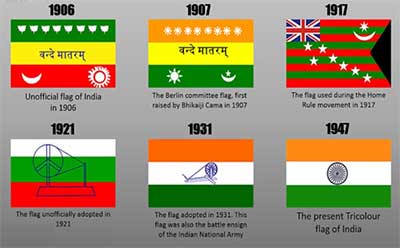About Indian National Congress:
- It was founded in 1885 by A O Hume.
- It was the first modern nationalist movement to emerge against the British Empire in Asia.
- He invited many Indian leaders laid the foundation of INC, earlier known as ‘Indian National Union’.
- But, after the suggestion of Dadabhai Naoroji, its name was changed to ‘Indian National Congress.’
- The word ‘Congress’ was sourced from the American Constitution.
- A dire need was felt for an all-India organisation of educated Indians since 1880, but the Ilbert Bill controversy deepened this desire.
| SESSION | PLACE AND YEAR | PRESIDENT | IMPORTANT EVENT OF THE SESSION |
| First session | Bombay, 1885 | Womesh Chandra Bannerjee | Formation of the Indian National Congress |
| Second session | Calcutta, 1886 | Shri Dadabhai Naoroji | |
| Third session | Madras, 1887 | Badruddin Tyabji | First Muslim President |
| Fourth session | Allahabad, 1888 | George Yule | First English President |
| Twelfth session | Calcutta, 1896 | Rahimatullah M. Sayani | National Song ‘Vande Mataram’ was sung for the first time by Rabindranath Tagore. |
| Fifteenth session | Lucknow, 1899 | Romesh Chunder Dutt | There was a demand for permanent fixation of Land revenue in this session |
| Seventeenth session | Calcutta, 1901 | Dinshaw Wacha | First time, Gandhiji appeared on INC platform |
| 21st session | Banaras, 1905 | Gopal Krishna Gokhale | Formal proclamation of Swadeshi movement against government |
| 22nd session | Calcutta, 1906 | Dadabhai Naoroji | This session had adopted four resolutions i.e. Swaraj (Self Government), Boycott Movement, Swadeshi & National Education |
| 23rd session | Surat, 1907 | Rash Bihari Ghosh |
|
| 25th session | Allahabad, 1910 | Sir William Wedderburn | M.A Jinnah publicly rejected the separate electorate system introduced by act of 1909 |
| 26th session | Calcutta, 1911 | B. N. Dhar | First time Jan-Gan-Man was recited in Congress session |
| 30th session | Bombay, 1915 | Satyendra Sinha | Constitution of the Congress was altered to admit the delegates from the extremist section |
| 31st session | Lucknow, 1916 | A.C.Majumdar |
|
| 32nd session | Calcutta, 1917 | Annie Besant | First woman president |
| 1918 Special Session | Bombay, 1918 | Syed Hasan Imam | The session was called upon to discuss on Montagu–Chelmsford Reforms Scheme |
| 34th session | Amritsar, 1919 | Motilal Nehru | Congress extended support to Khilafat Movement |
| 35th session | Nagpur, 1920 | C. Vijayaraghavachariar |
|
| 1920 Special Session | Calcutta, 1920 | Lala Lajpat Rai | Mahatma Gandhi moved the Non cooperation resolution |
| 37th session | Gaya, 1922 | C.R.Das |
|
| 39th session | Belgaum, 1924 | Mahatma Gandhi | Only session presided by Bapu |
| 40th session | Cawnpore (Kanpur), 1925 | Sarojini Naidu | First Indian Women President |
| 42nd session | Madras, 1927 | M. A. Ansari |
|
| 43rd session | Lahore, 1929 | Jawaharlal Nehru |
|
| 45th session | Karachi, 1931 | Sardar Vallabhbhai Patel |
|
| 48th session | Bombay, 1934 | Dr. Rajendra Prasad | The Constitution of Congress got amended |
| 50th session | Faizpur, 1937 | Pt. Jawaharlal Nehru | First Session to be held in a village |
| 51st session | Haripura, 1938 | Subash Chandra Bose | National Planning Committee set up under Jawahar Lal Nehru. |
| 52nd session | Tripura, 1939 | Subash Chandra Bose, but resigned Then, Rajendra Prasad | Subhash Chandra Bose formed Forward Bloc |
| 53rd session | Ramgarh, 1940 | Maulana Abul Kalam Azad | Civil Disobedience movement to be launched soon. |
| 54th session | Meerut, 1946 | J. B. Kriplani |
|
Sources
- INC.com
- NCERTs









